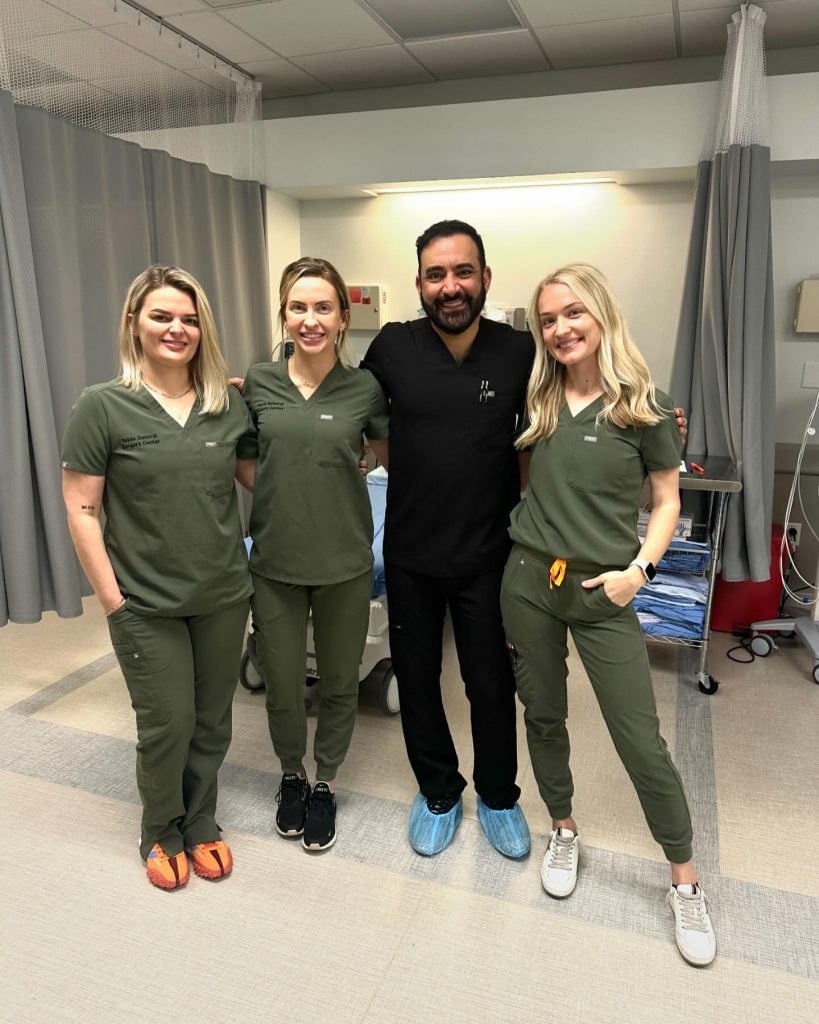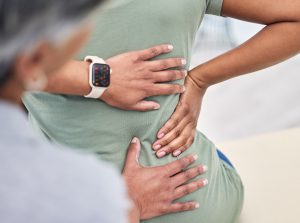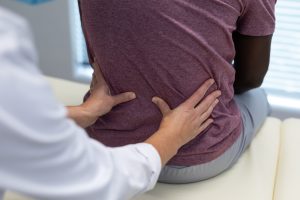Waking up with sharp lower back pain or struggling to sit comfortably throughout the day can be signs of a herniated disc. If you’re dealing with this issue, you’re probably wondering: Can a herniated disc heal on its own? The good news is—sometimes, yes. But healing depends on many factors, including the size of the herniation, your age, activity level, and the care you receive.
What Happens When a Disc Herniates
Between each vertebra in your spine is a soft, gel-like disc that cushions your bones and allows flexibility. When a disc herniates, its soft center pushes through a crack in the tougher outer layer. This can irritate nearby nerves, causing pain, tingling, or numbness—often in the lower back, hips, or legs.
Can Spinal Discs Heal Naturally?
In many cases, the body can reabsorb the herniated portion of the disc over time. This natural spinal healing process may lead to reduced inflammation and less pain without surgery. According to Dr. Ghalambor, fellowship-trained interventional pain management specialist at NorTex Spine & Joint, “The spine has an amazing ability to heal itself. With the right guidance and conservative care, many herniated discs resolve without the need for invasive procedures.”
Herniated Disc Healing Timeline
Recovery times vary. Here’s a general outline of what to expect:
- First 1–2 weeks: Acute pain and inflammation
- Weeks 3–6: Improvement with conservative treatments like rest, physical therapy, and medication
- 3 months+: Continued healing and return to daily activities with proper care
If your symptoms persist or worsen, it’s time to explore more advanced herniated disc treatment options.
Non-Surgical Herniated Disc Recovery Tips
Natural healing is possible, but it’s important to support your body along the way. Here’s how:
- Rest briefly, then move gently: Avoid staying in bed for more than a couple of days. Light activity can help reduce stiffness.
- Apply hot or cold packs: Cold reduces inflammation, while heat can relax tense muscles.
- Practice spine-friendly movement: Learn proper lifting techniques to avoid strain.
- Start physical therapy for herniated disc: A therapist can design exercises that reduce pain and strengthen your core.
- Consider spinal decompression therapy: Some clinics offer non-surgical decompression to relieve pressure on spinal nerves.
When You Might Need Medical Intervention
Sometimes, natural healing isn’t enough. If you experience:
- Persistent pain after several weeks
- Muscle weakness
- Difficulty standing or walking
- Loss of bladder or bowel control
…then you should book a spinal therapy consultation right away. A lower back pain specialist appointment can help determine if you need injections, medication, or—rarely—surgery.
Dr. Ghalambor adds, “Not every herniated disc needs surgery. At NorTex Spine & Joint, we focus on creating a herniated disc recovery plan that fits each patient’s condition and goals.”
What Are Your Treatment Options?
If you’re looking for disc injury treatment options, here are some that may be part of your plan:
- Physical therapy
- Anti-inflammatory medications
- Steroid injections
- Radiofrequency ablation
- Minimally invasive surgery (only when necessary)
NorTex Spine & Joint also offers non-surgical back pain therapy and back pain rehab services for patients across Fort Worth, Allen, Coppell, and Garland, TX.
Finding the Right Help
If you’re unsure where to start, search for a herniated disc treatment near me or visit a spinal decompression therapy clinic. A proper evaluation can help you avoid unnecessary procedures and promote long-term healing.
Transparency Note
While NorTex Spine & Joint provides specialized care, many reputable clinics offer similar treatments. Always seek multiple opinions before deciding on treatment.
Take the Next Step Toward Relief
If you’re struggling with symptoms, don’t wait. Schedule a back pain evaluation today and get a custom recovery plan built around you. Healing is possible—and in many cases, it starts without surgery.
Additional Resources:
https://www.mayoclinichealthsystem.org/hometown-health/speaking-of-health/7-common-low-back-pain-faq
https://www.webmd.com/back-pain/what-helps-with-lower-back-pain







